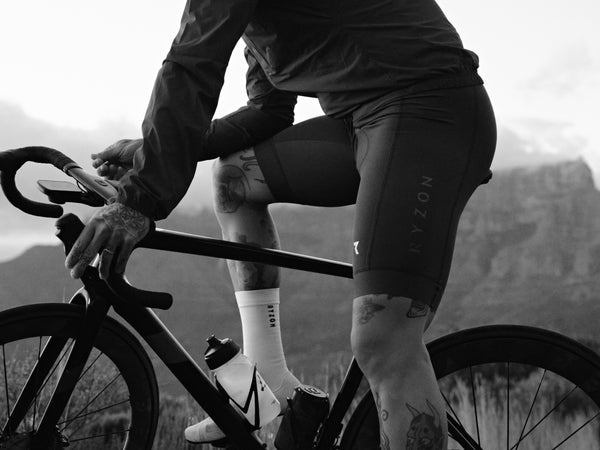Ryzon's product development decided on merino wool when choosing the material for the winter hats. The Merino Beanie and the Merino Fine Beanie from our Recharged Aura Series are made in a knitting factory that began in Germany in the 1920s and is now managed by the fourth generation. The current company location in NRW, run by the great-grandson of the founder, has specialized in various special processing methods for yarns and has constantly expanded the repertoire of processing technologies.
We select our producers based on certain criteria and aspects. Close cooperation to be able to trace the processes is essential for us as a vertical company. In addition, the combination of quality and fair working conditions is very important. The production facility in which we have our hats manufactured combines all the criteria that are of great importance to us.

Natural Temperature Control
Merino wool is a natural product that comes from Merino sheep. The special feature of merino wool compared to other types of wool is the spiral structure of the wool fiber. The spirals create cavities that allow air to circulate. This property serves as optimal insulation and thermoregulation. It also has a high level of breathability, which on the one hand guarantees temperature equalization and perfects moisture management. The moisture produced by the body is absorbed and transported to the outside of the material so that it can dry. As a result, there is no unpleasant, clammy feeling on the skin. In addition, merino wool has an antibacterial effect and is odor-resistant. These properties make our hats a perfect companion on cold days.


Mulesing free
Due to the ever-increasing demand for wool, more and more wool is needed. In order to get the required amount of wool, the wool from several sheep is not used, but the same number of sheep are bred in such a way that their skin surface is larger than normal sheep due to folds. The wrinkled skin, especially on the rear, collects dirt and excrement. The additional body heat in combination with mild to hot outside temperatures offers an ideal nesting place for flies that lay their eggs there. The maggots that hatch eat their way through the sheep's tissues until they become infected, which often leads to death. To prevent this, mulesing was introduced. The skin folds on the back of the lambs are cut away to prevent flies from nesting. Without anesthetic, without aftercare. The wound is neither bandaged nor sealed. So what sounds like an improvement at first turns out to be absolute animal cruelty.
We are firmly against this treatment of the sheep. We want to counteract this and draw attention to the agonizing procedure. The merino wool we use comes from sheep that are kept mulesing-free. This means that these sheep are not over-bred and do not have extreme skin folds. In addition, vaccinating the animals can prevent flies from nesting. The market for mulesing-free wool is currently very small. But the more carefully we as consumers select products and buy only mulesing-free wool, the faster this animal cruelty can come to an end.


